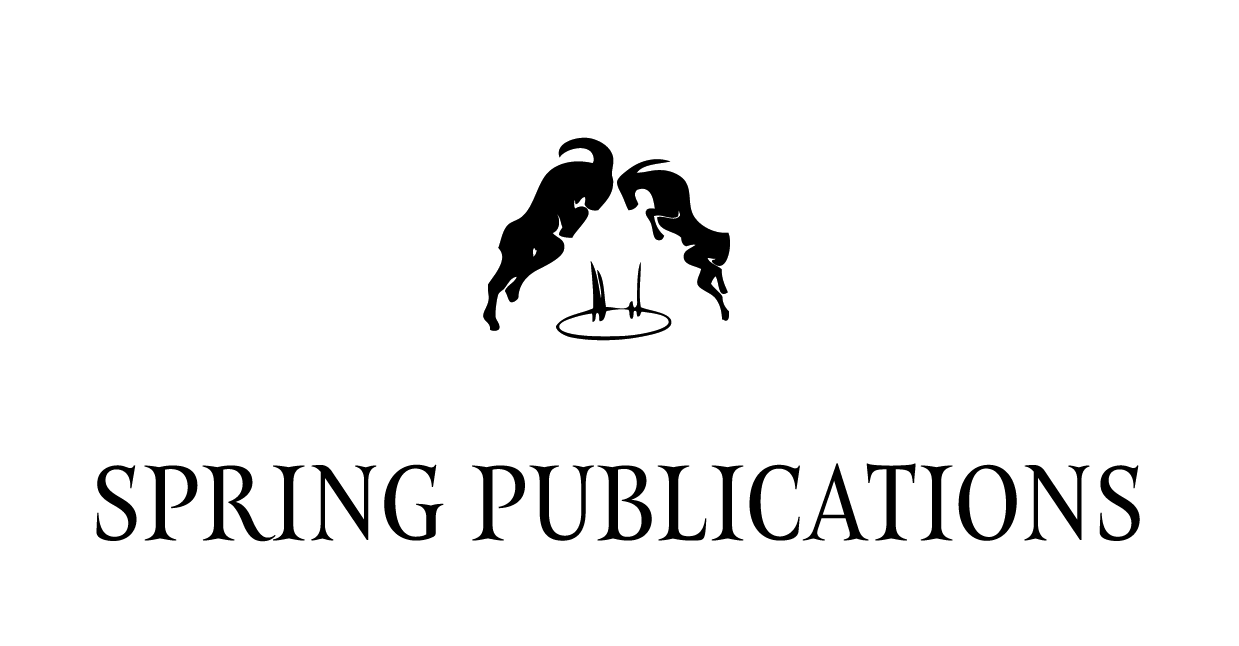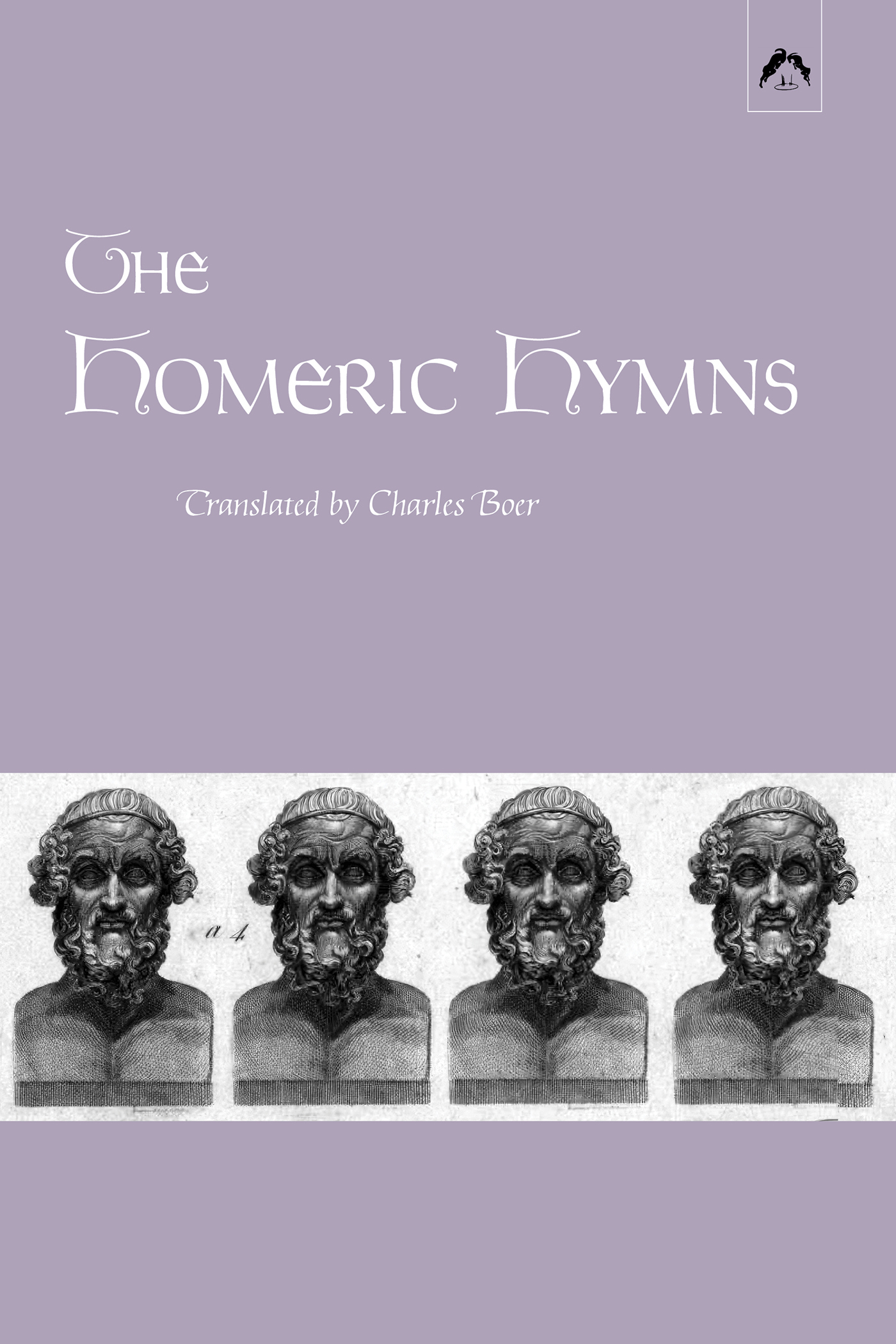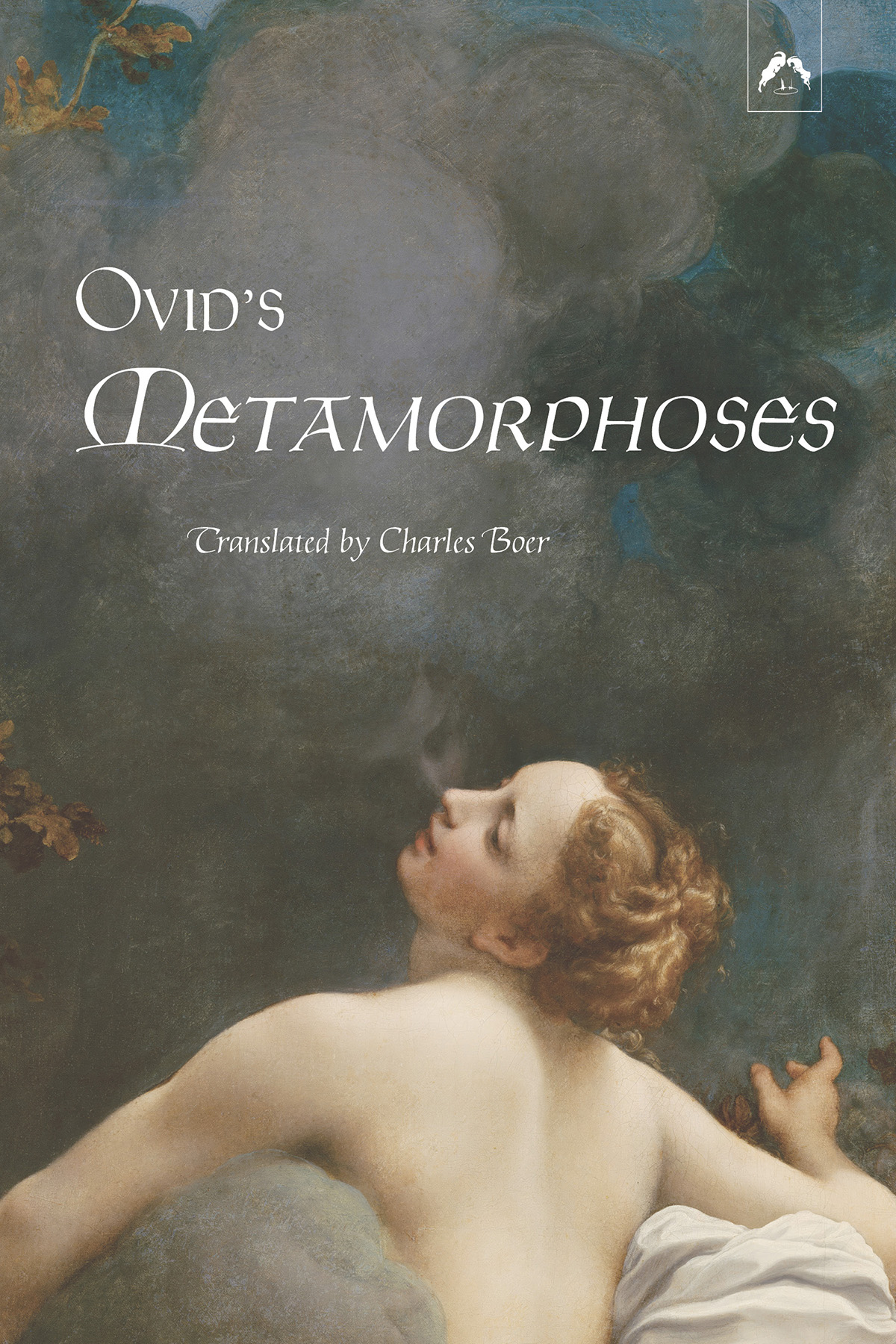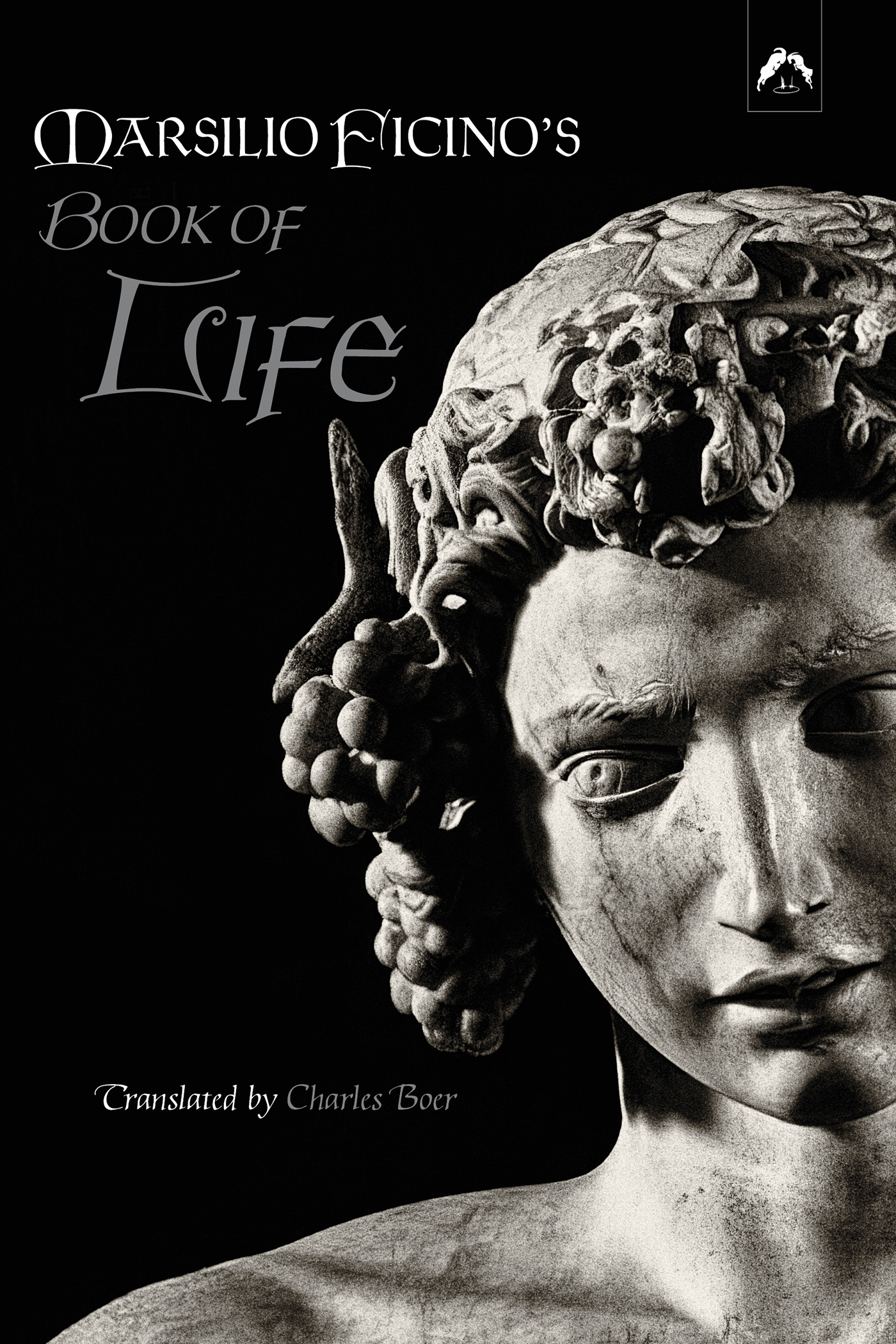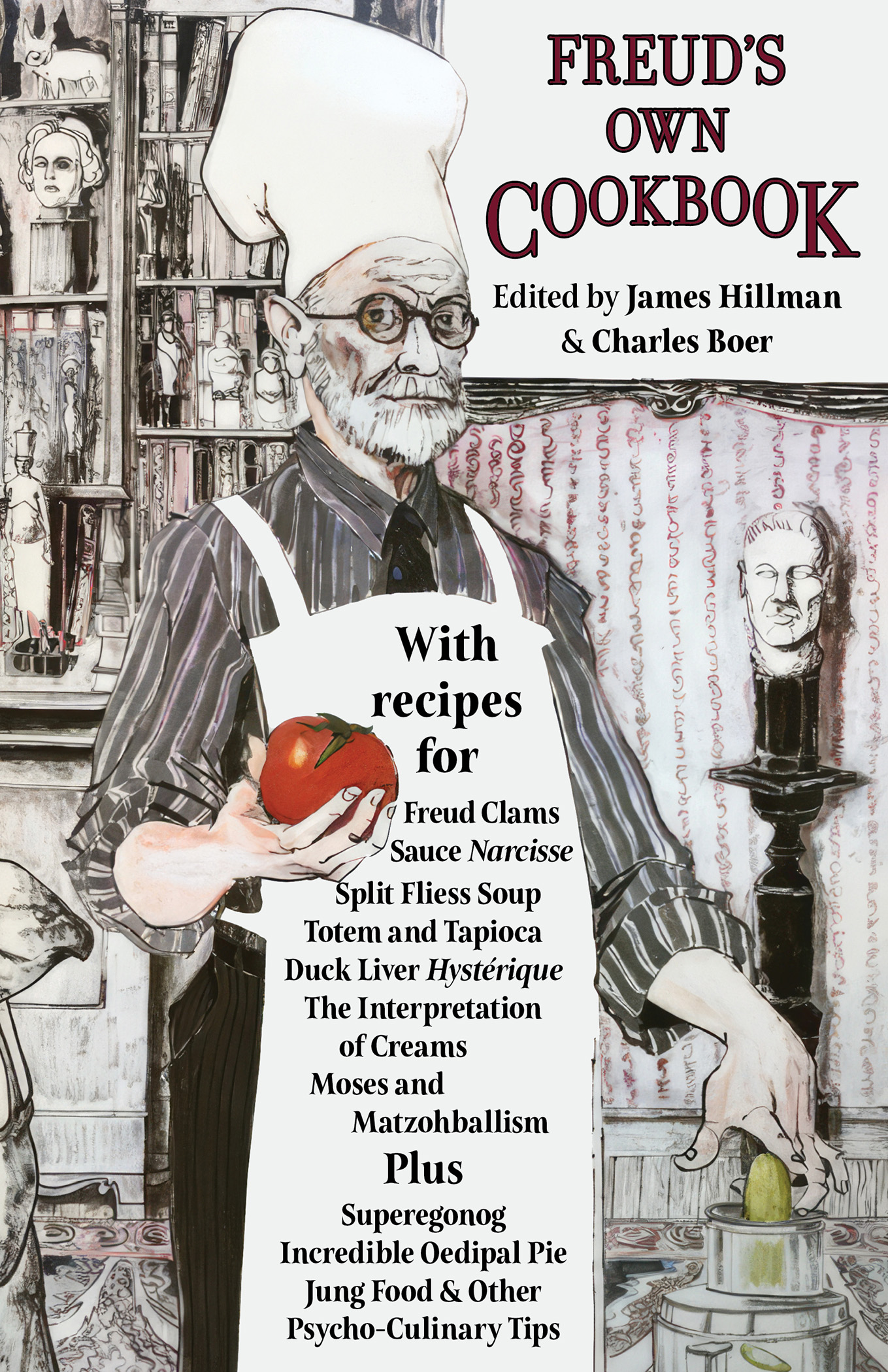CHARLES BOER (1939–2014)
Charles Boer taught mythology, poetry, and individual 20th-century writers in the English department at University of Connecticut from 1966 to 1992. He was a gifted translator of ancient Greek and Latin. His translation from ancient Greek of the Homeric hymns was nominated for the National Book Award in 1972, and his translations from Latin of Marsilio Ficino’s Book of Life (1980) and Ovid’s Metamorphoses (1989) were highly praised. His most popular and successful book (translated into 28 different languages), however, was Freud’s Own Cookbook, written with James Hillman. His other books include works of poetry and biography along with numerous literary and critical articles and lectures, and poems mostly published in small publications. After retiring from UConn, Boer became the editor of Spring: A Journal of Archetype and Culture and taught mythology and classics at the Pacifica Graduate Institute in Santa Barbara (1994–97). In addition, he was a regular participant and lecturer at the Eranos Conferences (1972–2001) in Ascona, Switzerland and a founder of the international Myth & Theatre Conference in 1986, in which he participated until 1999.
THE HOMERIC HYMNS
Translated by CHARLES BOER Third, revised edition Paperback original, 210 pages, $22ISBN: 978-0-88214-167-1 E-book, $9.99
978-0-88214-168-8
❝
We are all very much in Boer’s debt, and we should all welcome the appearance of a new translator who possesses both the power of language and respect for that past that can restore us the secrets of our own lost or threatened humanity.
— William Arrowsmith
— William Arrowsmith
OVID’S METAMORPHOSES
Translated by CHARLES BOER Second, revised edition Paperback original, 418 pages, $26ISBN: 978-0-88214-169-5 E-book, $9.99
978-0-88214-170-1
❝
This is the authentic Ovid, the feeling, the pulse, the mental and vocal style of a vanished people. Boer has found this hidden beat, and the eerie excitement in every line shows me what veils have lain between us and the ancients up till now …This is what the ancients were sitting still for, nothing less, of that I’m certain.
— William Kotzwinkle
— William Kotzwinkle
MARSILIO FICINO’S BOOK OF LIFE
Translated by CHARLES BOER Third, revised edition Paperback original, 250 pages, $24ISBN: 978-0-88214-171-8 E-book, $9.99
978-0-88214-172-5
A founding text of archetypal psychology, it has long been an important source for image-oriented thought.
FREUD’S OWN COOKBOOK
Edited by JAMES HILLMAN and CHARLES BOERWith illustrations by JEFF FISHER Second, revised edition Paperback original, 206 pages, $22
ISBN: 978-0-88214-165-7 E-book, $9.99
978-0-88214-166-4
With these recipes come Freud’s intimate revelations about his colleagues and patients, their gastronomical peculiarities—and some of his own—and previously unpublished reflections on his theories, including “Civilization and Its Indigestion,” “The Interpretation of Creams,” “Moses and Matzoballism,” and “Luncheon Interruptus.” The truth comes out about Jung’s fainting spells and Freud’s lifelong dislike of chicken.
Replete with source notes, editors’ comments, index, tips on technique, and delightful illustrations of the Vienna circle at the table, Freud’s Own Cookbook is essential for those who only know oral eroticism as a theory. Now everyone can try it, as Freud did, in the privacy of the kitchen.
❝ I didn't know he could cook. In fact, I didn't know men could cook.
— Alma Mahler A lovely book, a work of genius. I’m sending him some peaches.
— Nellie Melba
